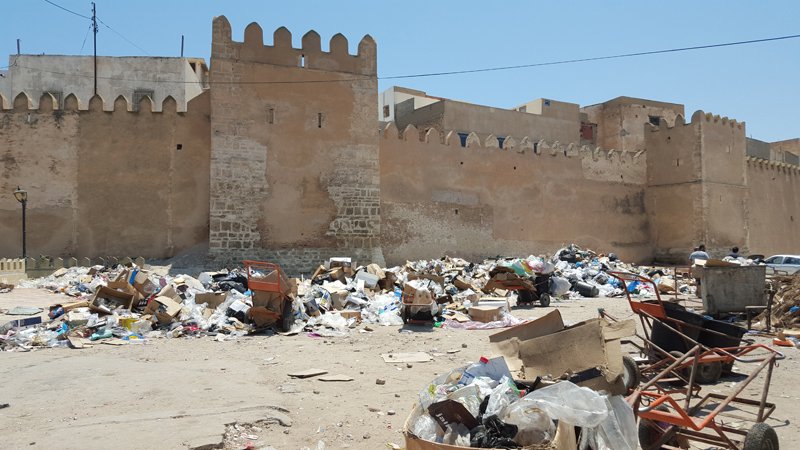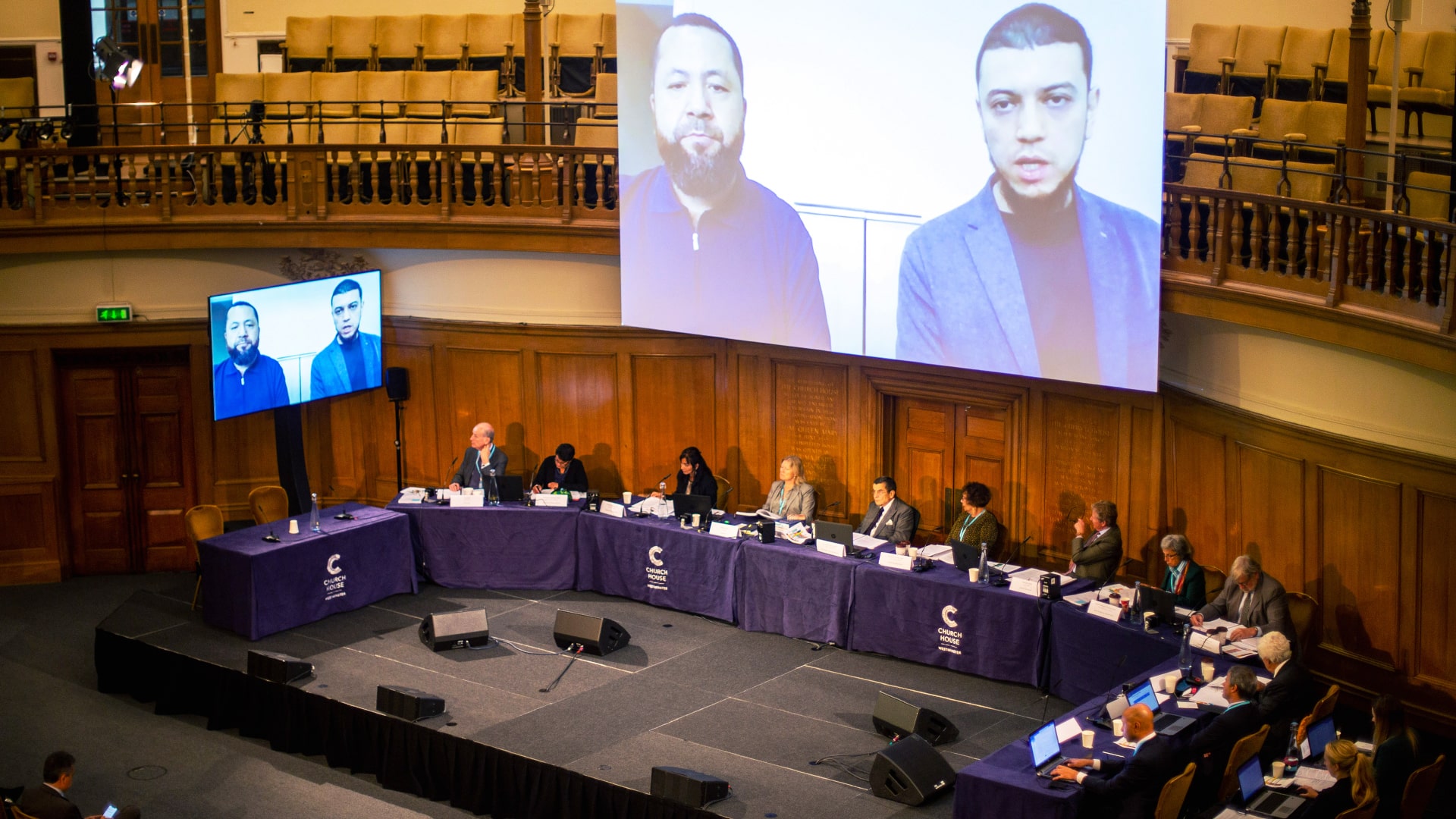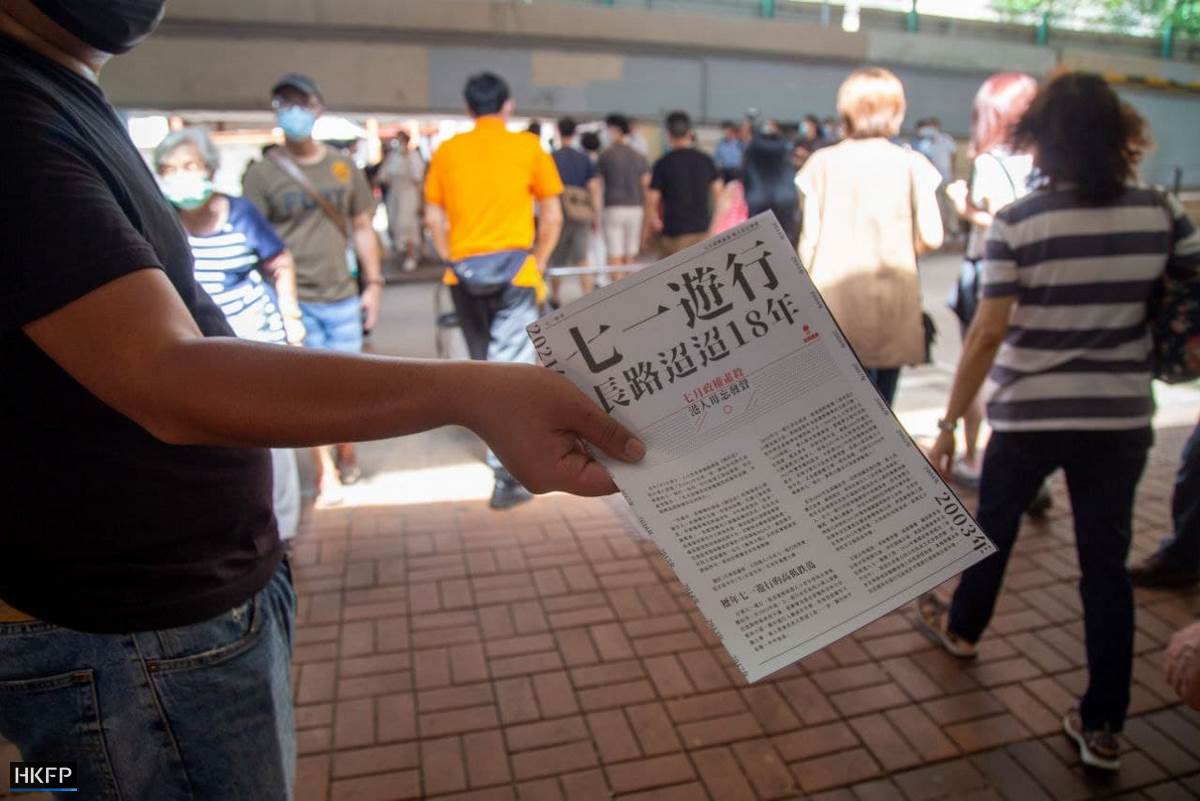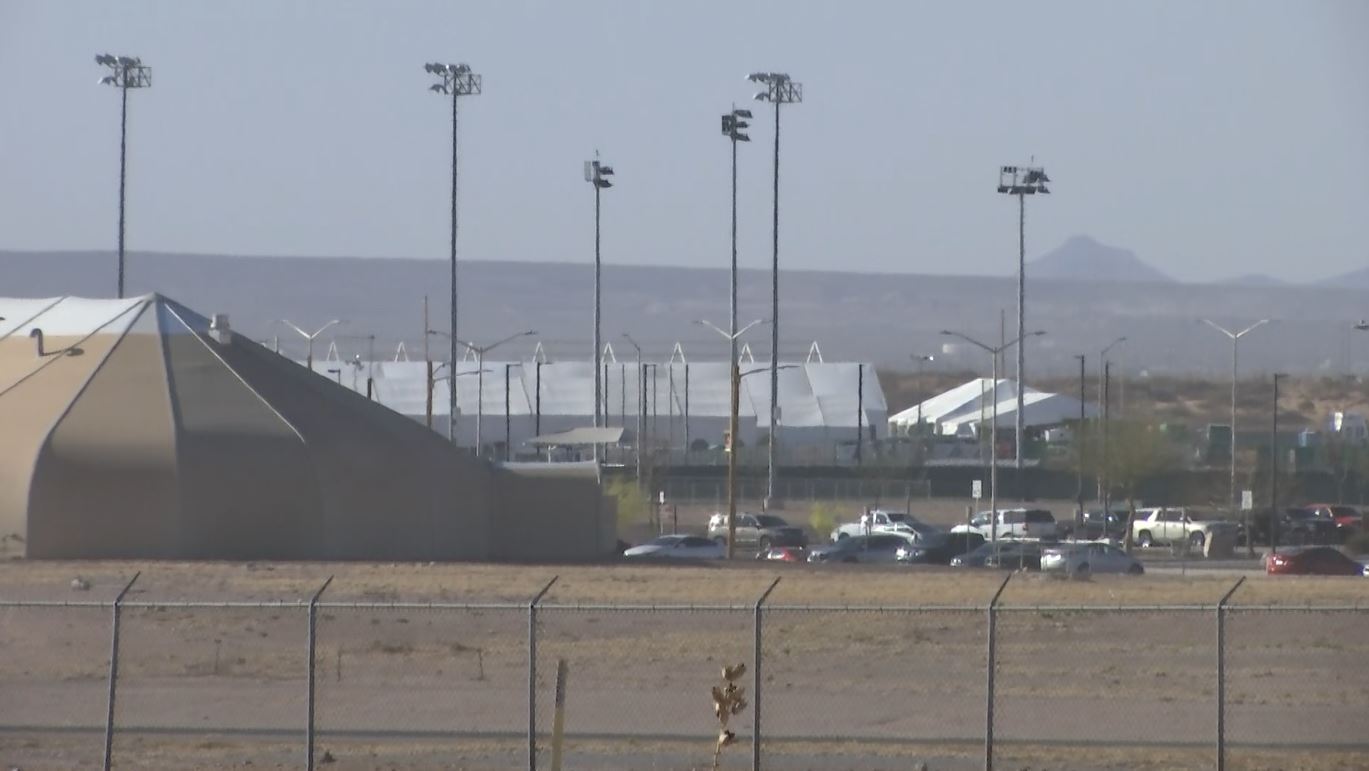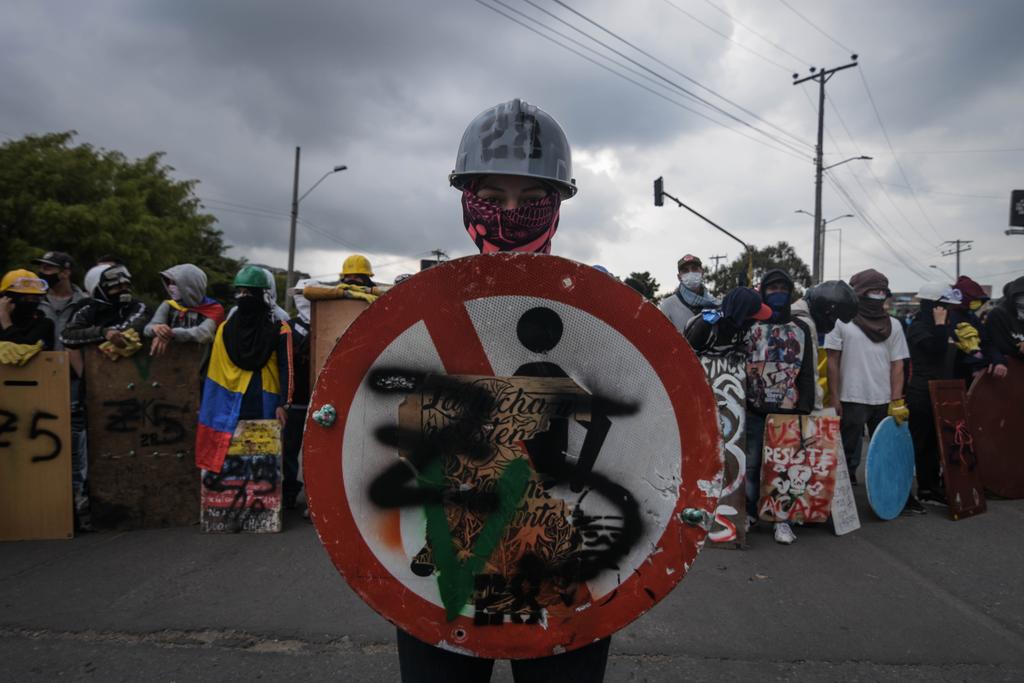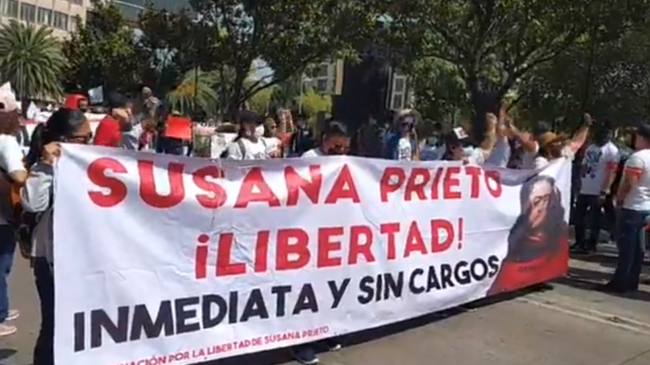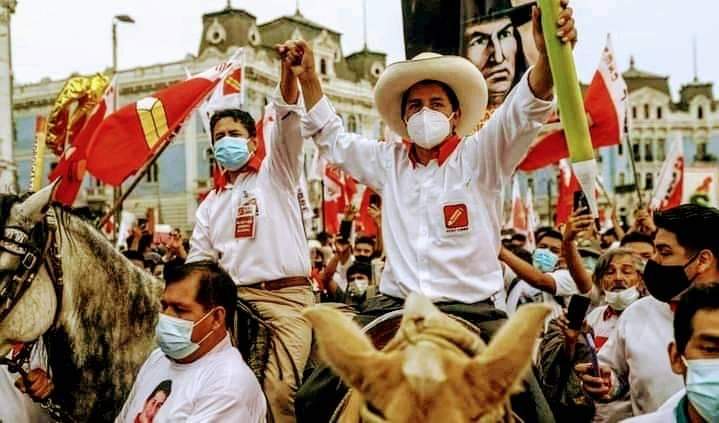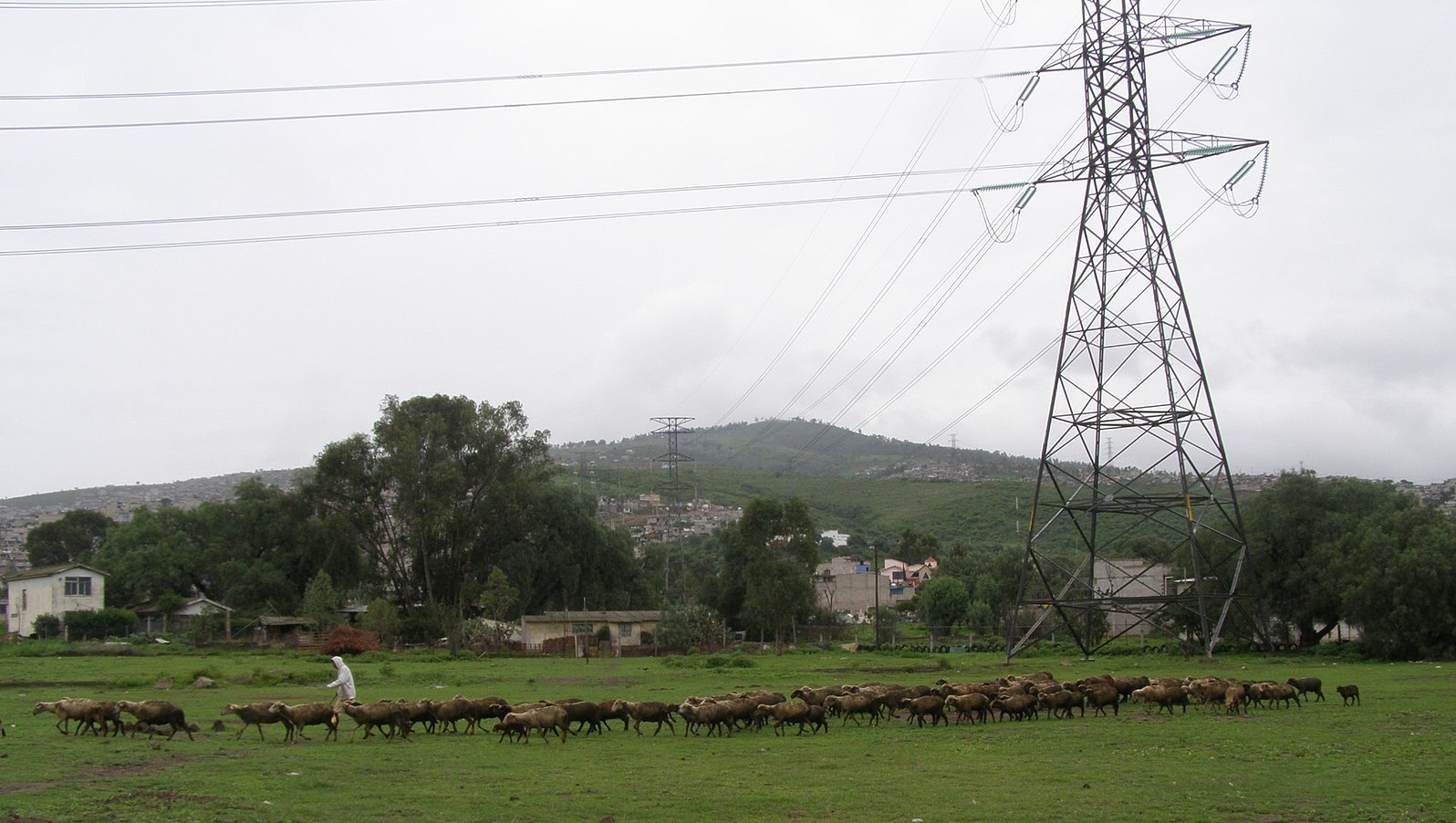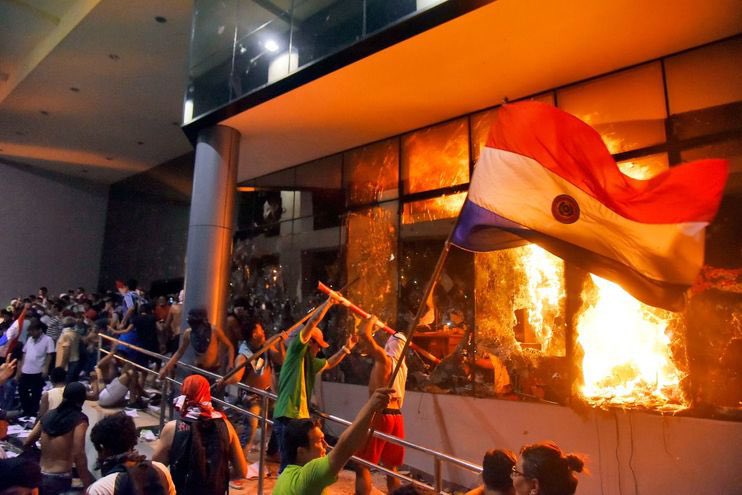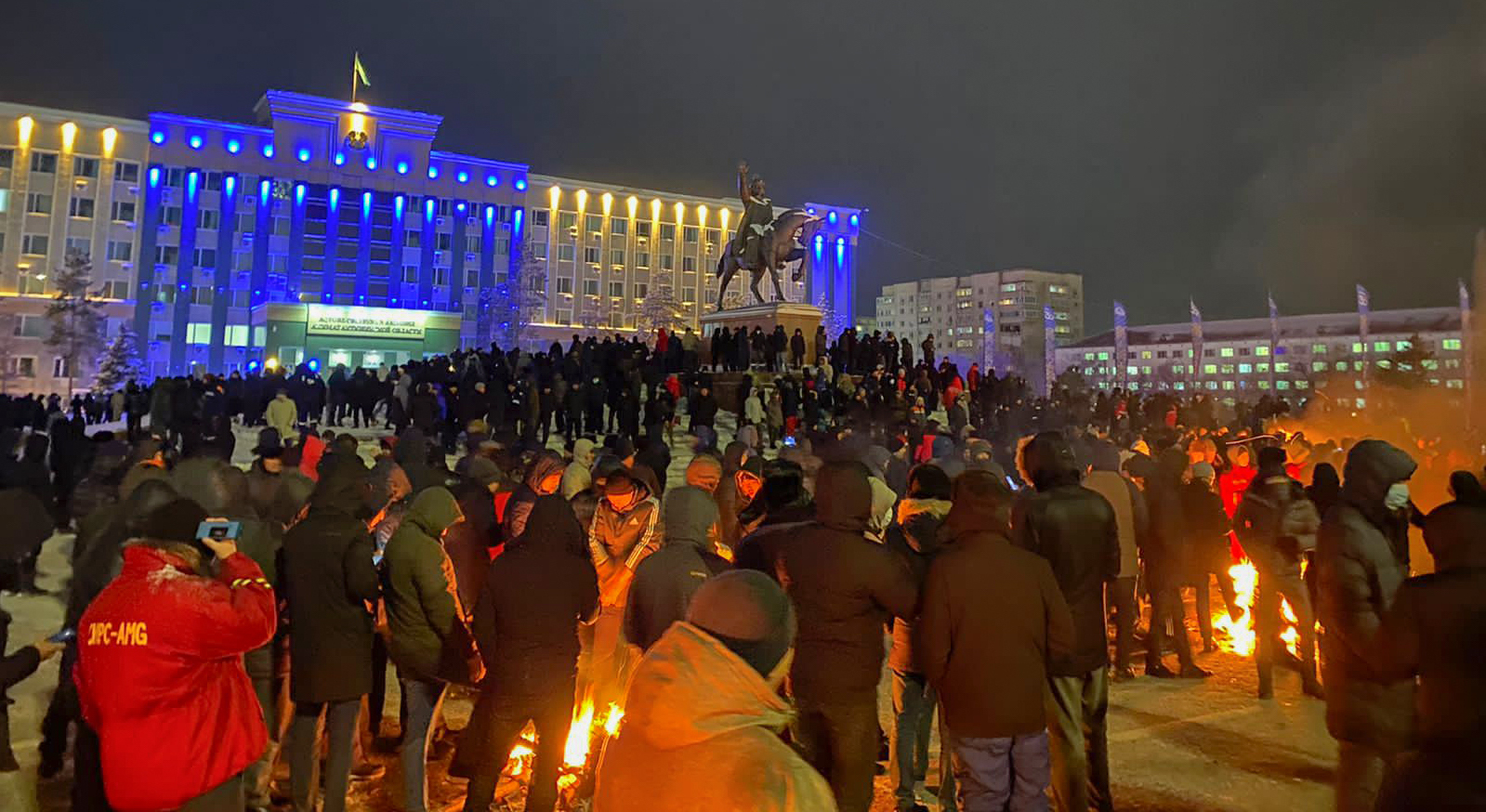
Kazakhstan president asks Russia to help quash uprising
Kazakhstan’s President Kasym-Jomart Tokayev called participants in the protests that have swept the Central Asian nation “terrorists,” accusing them of attempting to undermine his government at the behest of foreign powers. After concessions such as a cabinet purge and instating fuel-price controls failed to quell the uprising, Tokayev quickly unleashed harsh repression. Declaring a state of emergency, he flooded the streets with riot police and pledged to “conduct counter-terrorist operations.” He also called on Russia and the other members of the Collective Security Treaty Organization (CSTO) to come to the defense of his regime. The CSTO has agreed to send “peacekeepers” to Kazakhstan. (Photo via Wikipedia)



